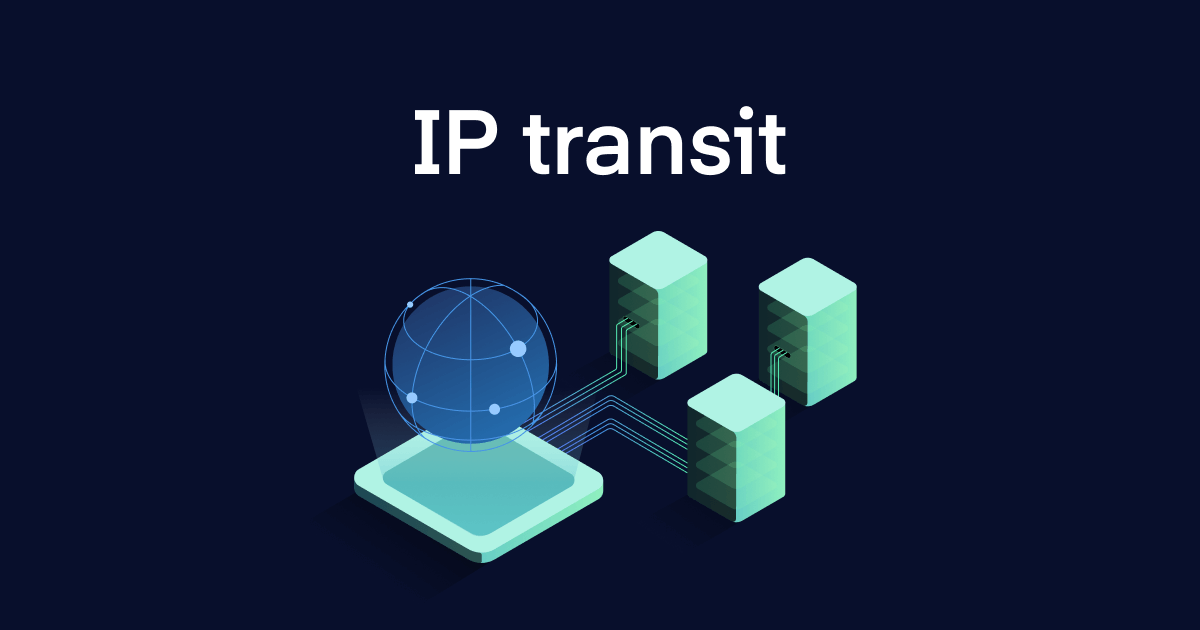In the constantly evolving landscape of internet connectivity, both businesses big and small rely on IP transit to provide uninterrupted access to the digital world. IP transit is at the core of all modern communications networks, from enabling cloud-based services to powering platforms for e-commerce. In this article, we’ll discuss the fundamentals of IP transit, the roles of IP transit providers, the array of services they provide, and how companies can navigate IP transit costs and pricing.

IP transit is also called internet transit. It allows network traffic (also known as “traffic”) to cross or “transit” to a network. The users can then connect to the wider internet. IP transit providers provide this connectivity by owning and running the infrastructure required for data transmission between networks. They are crucial in giving consumers and businesses high-quality internet connectivity.
In the case of IP transit services, companies have many options to choose from. Certain providers offer basic transit services that allow access to the Internet, without any modifications or extra features. Some providers provide more advanced solutions like managed IP transit that includes additional assistance, monitoring, and security options. The selection of a service is based on the needs and requirements of your business.
Pricing is one of the most important considerations in the selection of the right provider. Pricing for IP transit may be influenced by factors such as bandwidth requirements, geographic location as well as service-level agreements. It is important for businesses to be aware of the various pricing models and cost structure offered by providers in order to make informed decisions and reap the maximum value from their investment.
In addition to pricing, businesses should also consider the reliability and performance of the IP transit provider. Carrier-grade networks, with backbone connectivity of either 100G or 400G, can provide the reliability and scale needed to provide mission-critical applications and services. Automating all processes from start to finish enhances efficiency, and offers an effortless experience for users.
IP-Access provides a customizable and flexible solution for businesses that are seeking to streamline their networking connectivity. This solution is perfect for companies that have legacy installations or special requirements. Businesses can modify their connectivity with features such as IPv4/31 or IPv6/127. default transfer networks.
IP-Access offers basic DDoS protection for bulky attacks as part its internet access. This adds a layer of security and safety to corporate networks. This protection helps safeguard against downtime and potential loss of profits due to cyber attacks.
Inter.link Portal is a simple and easy way for companies of any size to access IP Transit services. In just a few clicks the business can set up and deploy IP transit in a matter of minutes by choosing their preferred locations the bandwidth requirements, ports speed, and contract length. This simple process can save time and money which allows companies to focus on their core operations.
IP transit is a vital element of the modern internet, enabling businesses to connect and communicate with people across the globe. Knowing the fundamentals of IP Transit, the function of IP Transit providers, their wide range of services, and the way they estimate their prices and costs will allow businesses to make informed decisions. They also can ensure that they have the right connectivity to succeed in the technological world that we live in today. IP Transit is the core of modern communication networks, whether it’s for connecting to cloud-based services or serving as the powerhouse behind platforms like ecommerce or connecting remote offices.